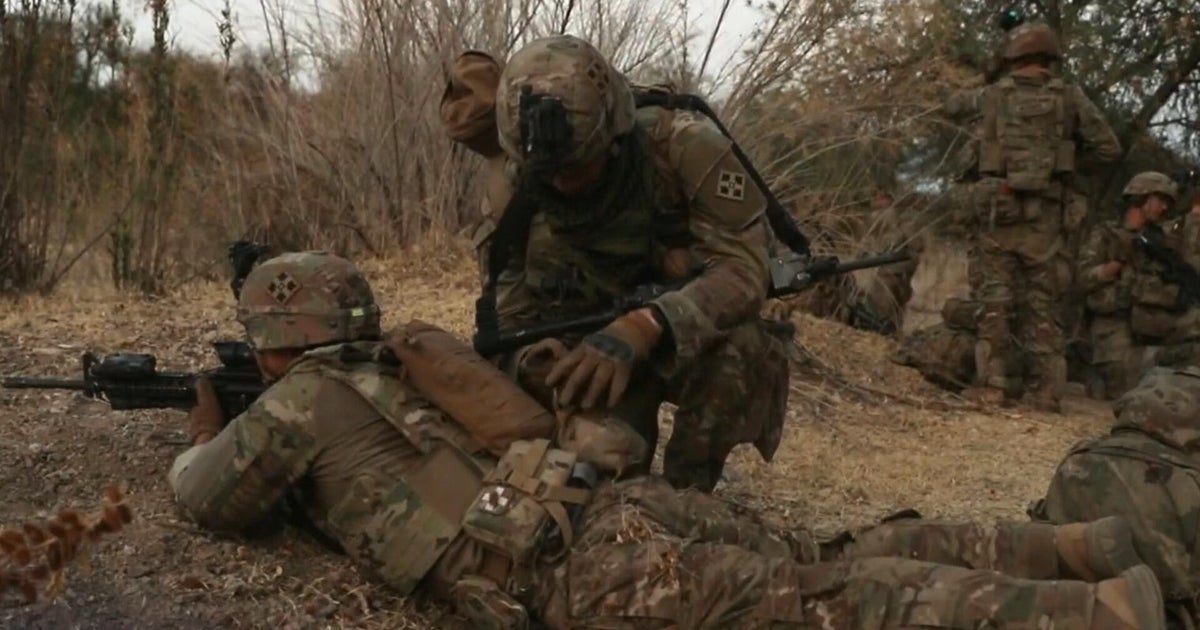Along the U.S.-Mexico border in Arizona, a brigade of soldiers is guarding the border wall as part of President Trump's plan to further increase U.S. military presence there. Charlie D'Agata reports.
Why it matters
- The deployment of military personnel to the U.S.-Mexico border is part of a broader strategy aimed at bolstering national security.
- This move raises questions about the militarization of domestic border security and its implications for immigration policy.
- The presence of troops could potentially influence the dynamics of border enforcement and immigrant crossings.
In a significant escalation of military involvement in border security, a contingent of soldiers has been stationed along the U.S.-Mexico border in Arizona. This initiative is part of President Trump's ongoing efforts to strengthen the military presence at the nation’s southern frontier, a move that has garnered both support and criticism across the political landscape. The increased focus on border security comes as the administration seeks to address concerns related to illegal immigration and drug trafficking, two issues that have long been at the forefront of national discourse.
As reported by CBS News, the soldiers are tasked with guarding the border wall, a key element of the Trump administration's immigration strategy. The decision to deploy military forces to this area reflects a broader trend of utilizing military resources in domestic security roles, a practice that is not without controversy. Critics argue that militarizing the border could lead to heightened tensions and a more confrontational approach to immigration enforcement. Proponents, however, assert that a stronger military presence is necessary to deter illegal crossings and enhance safety along the border.
The soldiers stationed in Arizona are equipped to assist local law enforcement agencies in their efforts to secure the border. Their responsibilities include monitoring surveillance equipment, supporting border patrol agents, and providing logistical assistance. This military support aims to alleviate some of the pressures local agencies face as they manage the complexities of border security.
The deployment of troops has sparked a heated debate about the role of the military in civilian law enforcement. Advocates for a restrained approach argue that military involvement in domestic affairs can blur the lines between civilian and military authority, potentially undermining public trust in law enforcement agencies. On the other hand, supporters contend that the unique challenges posed by border security warrant a more robust response, including military assistance.
In the context of heightened border crossings and a surge in migrant caravans, the Trump administration's focus on military deployment reflects its commitment to addressing what it describes as a national crisis. The situation at the border has been exacerbated by various factors, including economic instability in Central America and the ongoing impacts of the COVID-19 pandemic. As a result, the number of individuals attempting to cross the border has increased, placing additional strain on existing resources and prompting calls for a stronger enforcement presence.
The soldiers’ presence is not without its logistical challenges. Coordination between military personnel and border enforcement agencies is crucial to ensure that operations run smoothly and effectively. The integration of military resources into civilian operations necessitates careful planning and communication to avoid potential conflicts and ensure compliance with legal standards.
Looking ahead, the implications of this military deployment extend beyond immediate border security concerns. It raises questions about the future of U.S. immigration policy and how the government will address the complex issues surrounding migration. As the political landscape continues to evolve, the presence of troops at the border may become a focal point in broader discussions about immigration reform and national security.
The deployment of soldiers to the Arizona border exemplifies the Trump administration's determination to address perceived threats to national security through increased military involvement. As this situation unfolds, it will be essential to monitor the effects of such actions on both border security and the lives of those seeking to cross into the United States. The consequences of this military presence will likely reverberate throughout the immigration debate, influencing public opinion and shaping future policy decisions.











